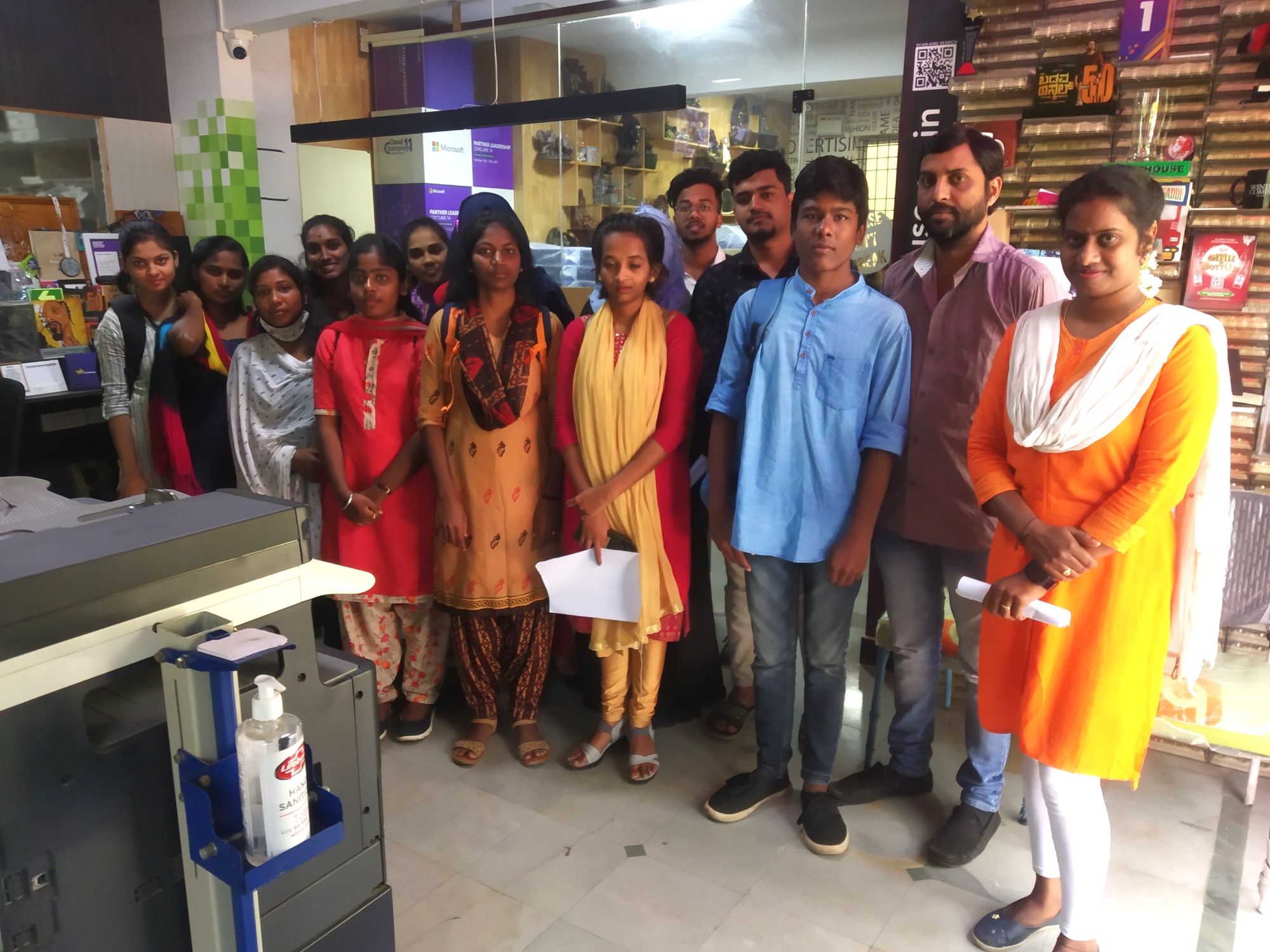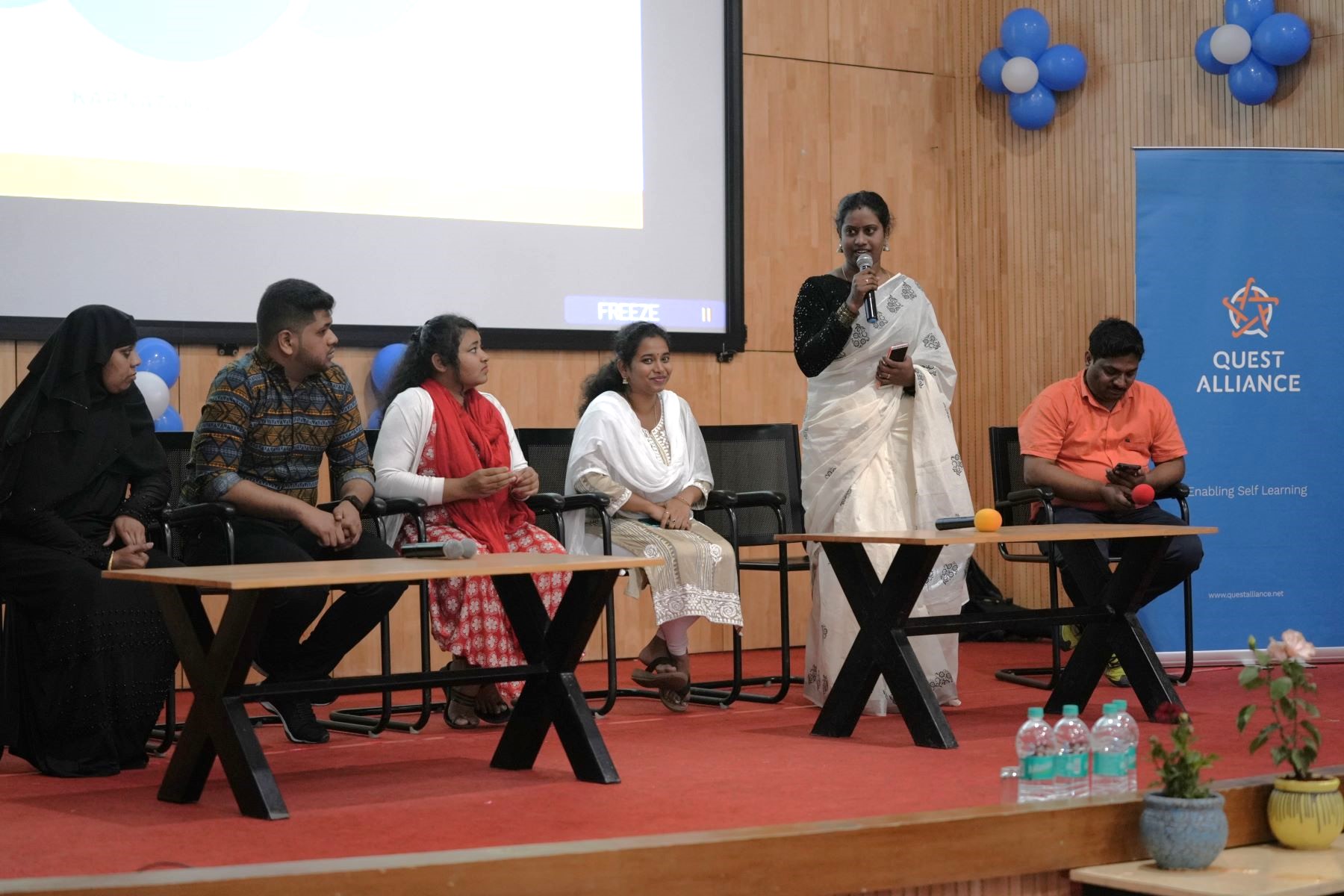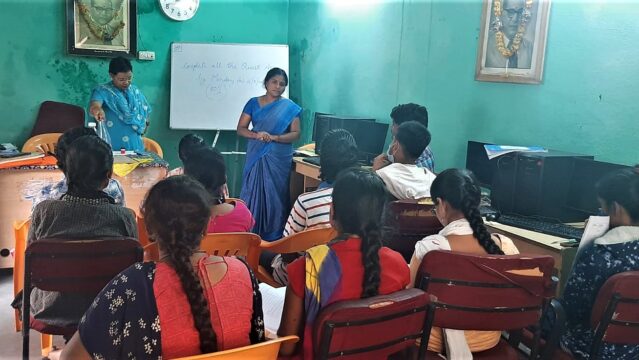Story
Shwetha Helped 480+ Students Get A Job Via Campus Placements
The prospect of landing in your dream job without work experience is quite daunting, and even more so for blue-collar technical and vocational trades. Most students therefore rely on training centres for help with this. But to make campus placements work for everyone, these centres need to have a robust plan to meet the needs of their students and the communities they serve.
Details
Shwetha Y. is a coordinator at Association for Promoting Social Action (APSA)'s training centre in Bangalore. Like numerous other NGOs running short-term skill training programs for young people, Shwetha's centre too struggled to secure well-suited jobs for her learners. The challenges post-training, in the absence of well-defined placement processes, put a strain on the recruitment experience and the centre's image.
On the heels of the pandemic and with an economic recession on the horizon, many industries tinkered with some hiring shifts, leaving skilling institutions to find ways to bridge gaps and improve students' placement experiences.
As part of our youth employability program, we offer our NGO partners support and tailor capacity-building opportunities based on the latest trends and their needs. APSA's Shwetha Y. was part of a similar capacity-building workshop for those in charge of placements in vocational training institutes like hers. APSA has three centers in Bangalore, and offers 3-month skill training programs for learners from disadvantaged communities.
__________________________
“We relied heavily on the HR contacts we already had, and conducted a small job drives. Our focus was more towards self-employment as most of our learners are women."
-- Shwetha Y.
__________________________
Shwetha believes that the workshop changed the way she helped learners see what it takes to secure a job. “Learners used to be very hesitant to approach employers on their own. But I have seen a lot of change since we started conducting pre-placement activities to prepare learners for the job market”, she says. The capacity building workshop helped Shwetha refresh their placement objectives, plan and set up APSA's calendar of placement-related activities. Now, the first placement activity they do is a market scan. It's conducted in the second month of training, where students to meet local employers to understand market realities.

“We conduct two market scans, and while in the first one we have to nudge students to be part of it, by the time the second market scan is planned (in the third month of training), they willingly go out and approach employers,” says Shwetha. After the market scan learners do a goal-setting exercise and on the basis of their goals, the centre invites experts from those sectors for guest lectures. “Our students are quite keen on retail, education and the healthcare sector (admin jobs), so guest lecturers tend to be experts from these fields,” adds Shwetha.
These guest lectures are followed by another key activity -- mock interviews. There are two types: one conducted by the life skills and spoken English facilitator, and the other by HR professionals of different companies invited to give insights on industry expectations. Shwetha believes each of these activities ties into the most critical placement effort for every batch — the job drive. “Based on the information gathered from the market scan, we get an idea about which local employer is hiring. We invite them to the job drive, in addition to other employers on our database of employers,” she adds.
The database of employers as well as the students they've placed helps them understand market trends and seek out employers in the same sector. She says:
__________________________
“Close to 50% of our students are in retail jobs with brands like Cafe Coffee Day, and D-Mart, some of our largest recruiters. The financial services sector, mostly tele-calling for personal loans etc. is another sector that hires many of our students."
__________________________
Shwetha claims that the biggest change however is in the students themselves. Previously, when the APSA reached out to students urging them to take up jobs many of them were quite unresponsive. Now, APSA receives open and honest feedback from learners about why they don’t want to take up a job. For example, some include distance to the workplace, or target-driven sales jobs that are high pressure etc. This allows centres like Shwetha to look for alternatives and find better preferred jobs.
In order to help young women negotiate with families, they also conduct parent engagement sessions. One at the start of the skill training course and one post-training to help families understand the kind of jobs learners can pursue.
__________________________
“Married women are mostly pressured by in-laws to not take up a job. We try to help them negotiate with families.”
-- Shwetha Y.
__________________________
Students also approach Shwetha if a workplace is unsafe or if they are having issues at the workplace. “They think of us as people who can help them, and support them with better job opportunities,” says Shwetha. She uses a placement related WhatsApp group to inform students across centers of new vacancies. She believes this has helped made students more pro-active.
Shwetha believes all of these efforts have helped 75% of APSA’s 650 students find gainful employment.

Association for Promoting Social Action (APSA) is one of our NGO partners under the State Street Project and helps young people from disadvantaged communities build critical life skills to fulfill their career aspirations. Read more about the project here ↗
Shwetha Y.
Placement Officer, Association for Promoting Social Action (APSA)“I now look at placement as a process and not merely as an activity. Prior to following this process, our engagement with employers and even our students wasn’t this regular and proactive.”

